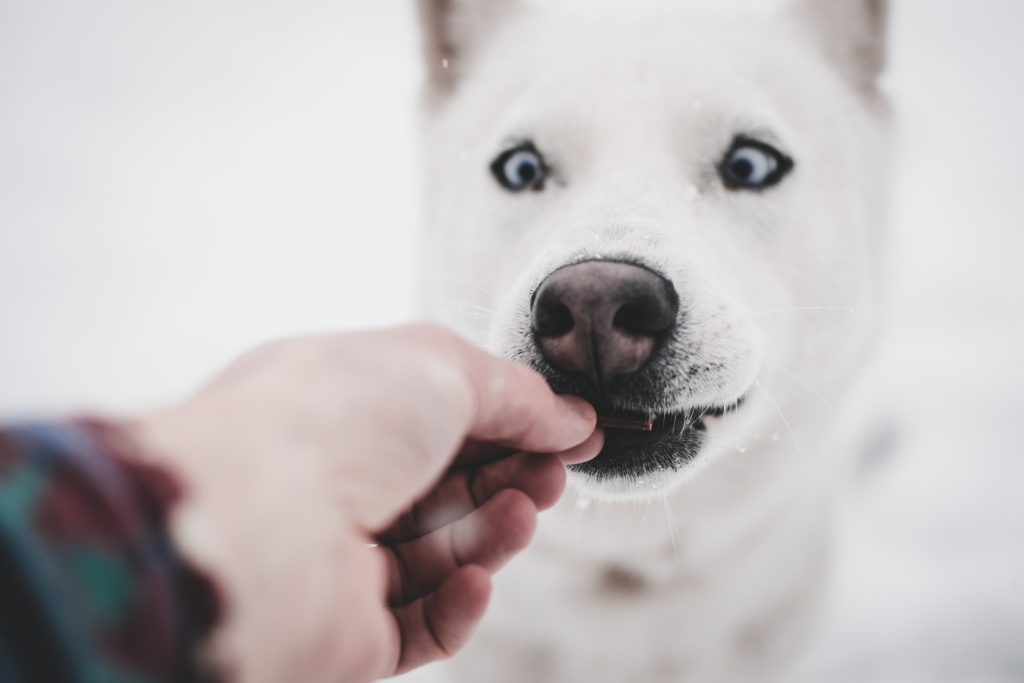
The best diet for a Siberian Husky should be carefully balanced to meet their unique nutritional needs. These beautiful Dogs require a diet that includes proteins, fats, carbohydrates, vitamins, and minerals in specific quantities to support their overall well-being. When it comes to proteins, lean meats, fish, and eggs from high-quality sources should be a significant part of their diet to ensure proper muscle maintenance and development.
Fats are also crucial for Siberian Huskies as they serve as a primary energy source and help maintain their thick coat. In particular, omega-3 and omega-6 fatty acids play a vital role in their diet. These essential fatty acids can be found in fish oil, flaxseed, and certain meats, and they contribute to a lustrous coat and healthy skin.
Carbohydrates are an important source of energy and fibre for Siberian Huskies. Including whole grains, vegetables, and certain fruits in their diet ensures they get the necessary carbohydrates for their active lifestyle. Additionally, vitamins and minerals are essential for supporting various body functions, including immune health and bone strength. Commercial dog foods often include fortified nutrients, making them a convenient way to provide Siberian Huskies with the essential vitamins and minerals they need.
When considering specific food recommendations for Siberian Huskies, it is important to prioritize protein-rich foods. Eggs, fishmeal, carrots, and chicken meals are excellent options. Red meats, pork, and poultry can also be included in their diet, as long as they are prepared and cooked appropriately.
Incorporating antioxidant-rich vegetables and fruits into their diet further supports the overall well-being of Siberian Huskies. Vegetables such as spinach, garlic, celery, and carrots, as well as fruits like apples, can provide valuable antioxidants and additional nutrients.
While choosing the right diet for your Siberian Husky, it is crucial to consider specific factors. For Husky puppies, providing them with more calories and specific nutrients that promote growth and development is essential. Puppy-specific formulas are recommended to meet their specific needs.
Huskies that are prone to hip dysplasia and eye problems can benefit from a diet that supports joint health and is rich in antioxidants. Such a diet helps to mitigate the risks associated with these health issues and promotes their overall well-being.
It is important to ensure that Siberian Huskies have constant access to fresh, clean water, especially after exercise. Hydration is crucial for their overall health and plays a significant role in maintaining their well-being.
When it comes to meal frequency and portion control, it is generally recommended to provide Siberian Huskies with two meals a day. However, the portion sizes may vary depending on factors such as the dog's age, size, and activity level. Monitoring their weight and adjusting the portion sizes accordingly is important to prevent obesity and maintain their optimal health.
There are also certain dog food that should be avoided to ensure the safety of Siberian Huskies. Human foods like chocolate, grapes, onions, and anything containing xylitol should be kept away from them as they can be harmful to dogs and may even be toxic.
While a well-balanced diet should provide all the necessary nutrients, some supplements might be beneficial for Siberian Huskies. Glucosamine supplements can support joint health and help alleviate joint-related issues in Huskies. Additionally, omega-3 fatty acid supplements can help improve coat quality and maintain healthy skin. However, it is always best to consult with a veterinarian before adding any supplements to their diet to ensure they are appropriate for the individual dog's needs.

Feeding RAW food to a Siberian Husky can be an excellent choice for providing them with a well-rounded and nutritious diet. Raw food diets, also known as BARF (Biologically Appropriate Raw Food) or PMR (Prey Model Raw) diets, mimic what a dog's ancestors would have eaten in the wild. This type of diet consists of raw meat, bones, organs, and some fruits and vegetables, and it aims to provide a balanced and natural approach to nourishing your husky.
One of the key advantages of feeding RAW food to a Siberian Husky is the emphasis on high-quality protein. Huskies are active, energetic dogs that require plenty of lean protein to support their muscle development and overall health. Raw meat provides a rich source of protein, essential amino acids, and necessary nutrients that are easily digestible for huskies. This helps promote strong muscles, healthy skin, and a glossy coat, which are all characteristic traits of this magnificent breed.
Additionally, feeding RAW food can also have several other benefits for your Siberian Husky. One such advantage is the potential improvement in dental health. Chewing on raw meaty bones can help strengthen your husky's jaw muscles and clean their teeth naturally, reducing the risk of dental issues such as tartar buildup and gum disease. It can also provide mental stimulation and prevent boredom, as huskies are natural chewers and enjoy the challenge of gnawing on bones.
Another advantage of a RAW diet is that it allows dog owners to have complete control over what goes into their husky's meal. You can carefully select high-quality ingredients and ensure that your dog receives the necessary nutrients to thrive. This control also allows for customization, where you can tailor the diet to your husky's specific nutritional requirements, such as adding supplements like fish oil for omega-3 fatty acids or vitamin E for skin and coat health. This level of personalization ensures that your husky is getting a diet that suits their individual needs.
However, it is vital to note that feeding a RAW diet requires proper handling and food safety precautions. Raw meat can carry bacteria or parasites that can pose health risks not only to your husky but also to family members. It is essential to handle raw meat safely and ensure that it is sourced from reputable suppliers who follow strict food safety guidelines.
If you are considering switching your Siberian Husky to a RAW food diet, it is recommended to consult with a veterinarian or a canine nutritionist. They can guide you on the appropriate ratios of meat, bones, organs, and other components to ensure a balanced and complete diet. They can also help you navigate any potential challenges or adjustments that may arise during the transition phase.
Feeding RAW food to your Siberian Husky can be a rewarding choice that aligns with their natural nutritional needs. By providing them with a diet rich in high-quality protein and essential nutrients, you can help optimize their health, energy levels, and overall well-being. Remember to prioritize food safety, seek professional guidance, and embrace the benefits of offering a raw, nutritious diet to your beloved husky companion.
In conclusion, this comprehensive guide emphasizes the importance of a well-balanced diet for Siberian Huskies to ensure their health and vitality. By incorporating high-quality proteins, essential fats, carbohydrates, vitamins, and minerals, we can meet their unique nutritional needs. However, it is essential to consult with a veterinarian for specific dietary recommendations, especially for dogs with existing health conditions. With the right diet and care, Siberian Huskies can thrive and live a happy, healthy life.

 DogJanuary 22, 2024What are common health problems in Cavapoos?
DogJanuary 22, 2024What are common health problems in Cavapoos?
 DogJanuary 22, 2024How often should you exercise a Siberian Husky?
DogJanuary 22, 2024How often should you exercise a Siberian Husky?
 DogJanuary 21, 2024What is the best diet for a Siberian husky?
DogJanuary 21, 2024What is the best diet for a Siberian husky?
 DogJanuary 21, 2024How to Train a Siberian Husky Puppy?
DogJanuary 21, 2024How to Train a Siberian Husky Puppy?
